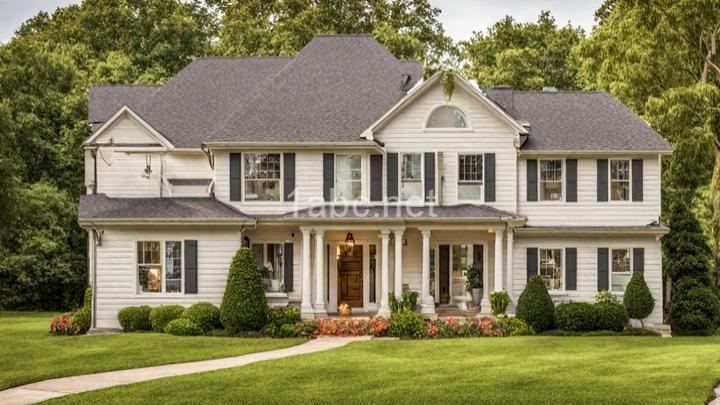Real Estate Insurance 101: Understanding Coverage Types

I. Introduction
Welcome to the world of real estate insurance! Whether you're a homeowner, a landlord, or a property investor, understanding the ins and outs of real estate insurance is crucial for protecting your investment. In this blog post, we will delve into the different coverage types and help you make informed decisions about your insurance needs. But first, let me share a personal anecdote to set the tone and engage you as a reader.
Picture this: You've just purchased your dream home after months of searching and negotiating. You're excited and relieved that the long process is finally over. But just a few weeks after moving in, disaster strikes. A sudden storm causes a tree to fall on your roof, causing extensive damage. As you look at the wreckage, you can't help but wonder, "Am I covered for this?"
This relatable scenario highlights the importance of real estate insurance. Without appropriate coverage, unexpected events like natural disasters, accidents, or even lawsuits can lead to financial ruin. But fear not! By understanding the different coverage types, you can protect yourself and your investment.
II. What is Real Estate Insurance?
Real estate insurance, also known as property insurance, is a type of coverage that protects your property from various risks and perils. It provides financial compensation for damages or losses to your property, as well as liability protection if someone is injured on your property. Think of it as a safety net that cushions you against unforeseen circumstances.
Having appropriate real estate insurance is not just a recommendation; it's a necessity. Whether you own a single-family home, a rental property, or a commercial building, insurance coverage gives you peace of mind knowing that you are financially protected.
III. Common Coverage Types
A. Property Insurance
Property insurance is the foundation of real estate insurance. It covers the physical structure of your property, as well as your personal belongings inside. In the event of a covered peril, such as fire, theft, or vandalism, property insurance provides compensation to repair or replace the damaged property.
For example, if a fire breaks out in your kitchen and causes extensive damage to your home, property insurance will cover the cost of repairs. Similarly, if your rental property is burglarized and valuable items are stolen, property insurance will reimburse you for the stolen goods.
B. Liability Insurance
Liability insurance is another essential coverage type in real estate insurance. It protects you from legal liability if someone is injured on your property or if you accidentally damage someone else's property. Lawsuits can be financially draining, but liability insurance covers legal fees, medical expenses, and settlements or judgments awarded against you.
Let's say a guest slips and falls on your icy driveway during a winter party. If they decide to sue you for their injuries, liability insurance will cover the legal costs and any compensation that may be required. Without liability insurance, you may have to pay out of pocket, which can be financially devastating.
C. Flood Insurance
While property and liability insurance cover a wide range of perils, they often exclude flood damage. If you live in an area prone to flooding, such as near a river or in a coastal region, having flood insurance is crucial. Flood insurance provides coverage for damages caused by flooding, including water damage to the structure and personal property.
Imagine waking up to find your basement flooded after heavy rain. Without flood insurance, the cost of repairs and replacing damaged items would fall squarely on your shoulders. But with flood insurance, you can rest assured that you are protected against this specific risk.
IV. Additional Coverage Options
A. Homeowners Association (HOA) Insurance
If you live in a community association or a homeowners association (HOA), you may already have a certain level of insurance coverage. HOA insurance is typically obtained by the association to protect common areas, such as swimming pools, clubhouses, and landscaping. It may also include limited coverage for the exterior of your unit or building.
While HOA insurance provides some level of protection, it's important to review the policy and understand its limitations. Depending on the specifics of your HOA agreement, you may need additional coverage to fully protect your property and personal belongings.
B. Dwelling Fire Insurance
Dwelling fire insurance is designed specifically for non-owner-occupied properties, such as rental homes or investment properties. It provides coverage for the structure itself, but not for the personal property inside. This type of insurance is ideal for landlords or property investors who are not residing in the property.
If you own rental properties, it's crucial to have dwelling fire insurance to protect your investment. It covers damages caused by perils such as fire, lightning, wind, and hail. While your tenants may have their own renters' insurance, it's important to have coverage for the structure itself.
V. Tips for Choosing the Right Coverage
A. Researching different policies and insurers
When it comes to real estate insurance, it's essential to do your due diligence. Research different insurance policies and insurers to find the best fit for your needs. Look for reputable insurers who have a history of excellent customer service and prompt claims processing.
There are many resources available online to help you compare policies and insurers. Websites like insurance comparison sites and consumer reviews can provide valuable insights into the experiences of other homeowners. Consider reaching out to friends, family, or even your real estate agent for recommendations and personal experiences.
B. Understanding policy limits and deductibles
Policy limits and deductibles are two important factors to consider when choosing real estate insurance. Policy limits refer to the maximum amount an insurer will pay for a covered claim. It's crucial to have adequate policy limits to ensure you are fully protected in case of a major loss.
Deductibles, on the other hand, are the out-of-pocket expenses you must pay before your insurance coverage kicks in. Higher deductibles often result in lower insurance premiums, but it's important to find a balance that works for your budget. Consider your financial situation and your ability to handle the deductible amount in the event of a claim.
VI. Conclusion
In conclusion, real estate insurance is an essential aspect of protecting your investment. By understanding the different coverage types, you can make informed decisions and ensure you have adequate protection for your property and personal belongings. Remember to review your current policies, seek professional advice if needed, and don't hesitate to make changes or additions to your coverage when necessary.
Real estate insurance provides the peace of mind that comes with knowing you are financially protected against unexpected events. Don't wait until disaster strikes. Take action today and review your insurance policies. If you have any questions or need further assistance, feel free to reach out. We're here to help!
Remember, your property is more than just bricks and mortar; it's a place where memories are made and dreams are realized. Protect your investment and enjoy the peace of mind that comes with having the right real estate insurance coverage.
FREQUENTLY ASKED QUESTIONS
Why do I need real estate insurance?
Real estate insurance is essential for protecting your property from potential risks and liabilities. Here are a few reasons why you need real estate insurance:
-
Property Protection: Real estate insurance provides coverage for your property against various risks such as fire, theft, vandalism, and natural disasters. It helps you recover financially if your property sustains any damage or is completely destroyed.
-
Liability Coverage: In addition to property protection, real estate insurance also includes liability coverage. This protects you against claims and lawsuits filed by third parties who may have suffered injuries or property damage on your property. It helps cover legal expenses and potential settlements.
-
Mortgage Requirement: If you have a mortgage on your property, your lender will most likely require you to have real estate insurance. Lenders want to ensure that their investment is protected against any unforeseen events that could affect the property's value.
-
Peace of Mind: Having real estate insurance provides peace of mind, knowing that you are financially protected in case of any unfortunate incidents. It allows you to focus on other aspects of property ownership without the constant worry of potential risks.
-
Rental Property Protection: If you own a rental property, real estate insurance is crucial. It not only protects the physical structure but also provides coverage for any loss of rental income due to property damage or tenant-related issues.
-
Additional Coverage Options: Real estate insurance offers various coverage options to suit your specific needs. You can opt for additional coverage for specific risks, such as flood insurance or earthquake insurance, depending on the location and potential hazards.
In summary, real estate insurance is necessary to safeguard your property, protect yourself from liability, meet mortgage requirements, and gain peace of mind. It is a wise investment that ensures financial protection and helps you mitigate potential risks associated with property ownership.
What types of coverage does real estate insurance typically include?
Real estate insurance typically includes several types of coverage to protect property owners. These coverages can vary depending on the specific policy and insurer, but some common types of coverage include:
-
Property coverage: This covers damage or loss to the physical structure of the property, as well as any attached structures like garages or sheds. It can also cover the contents of the property, such as appliances or furniture.
-
Liability coverage: This protects property owners in case someone is injured or their property is damaged while on the insured property. It can cover medical expenses, legal fees, and potential settlements or judgments.
-
Loss of income coverage: If a property becomes uninhabitable due to a covered loss, this coverage helps compensate the property owner for the lost rental income during the period of restoration or repair.
-
Additional living expenses coverage: If a property owner is unable to live in their property due to a covered loss, this coverage can help pay for temporary accommodations, meals, and other necessary expenses.
-
Natural disaster coverage: Some policies offer coverage for specific natural disasters like earthquakes, floods, or hurricanes. However, it's important to review the policy carefully, as certain types of natural disasters may require additional coverage or may be excluded altogether.
-
Equipment breakdown coverage: This covers the cost of repairing or replacing essential equipment, such as HVAC systems or electrical panels, in case of a mechanical or electrical breakdown.
It's important to note that real estate insurance policies can vary, so it's essential to carefully review the policy terms and conditions to understand the specific coverage provided. Additionally, property owners may choose to add additional coverage options or endorsements to tailor their policy to their specific needs.
Are there different types of real estate insurance policies?
Yes, there are indeed different types of real estate insurance policies available. These policies are designed to protect property owners and investors from various risks and liabilities associated with real estate. Some common types of real estate insurance policies include:
-
Property Insurance: This policy provides coverage for physical damage to the property caused by perils such as fire, theft, vandalism, or natural disasters like earthquakes or hurricanes.
-
Liability Insurance: This policy protects property owners from claims and lawsuits arising from injuries or property damage that occur on their premises. It covers legal expenses and medical costs associated with such incidents.
-
Landlord Insurance: Specifically designed for rental properties, this policy offers protection for property owners against risks related to tenant injuries, property damage, and loss of rental income.
-
Title Insurance: This policy safeguards property owners and lenders against any potential defects or disputes in the property's title. It provides coverage for legal fees and financial losses resulting from title issues.
-
Flood Insurance: As the name suggests, this policy provides coverage for damage caused by floods, which are typically not covered under a standard property insurance policy.
-
Builder's Risk Insurance: This policy provides coverage for property under construction or renovation. It protects the property owner and the builder against risks such as theft, vandalism, or damage caused by weather conditions.
These are just a few examples of the various types of real estate insurance policies available. It's important to carefully assess your specific needs and consult with an insurance professional to determine the most suitable coverage for your real estate investment.
How is the premium for real estate insurance determined?
The premium for real estate insurance is determined by several factors. Insurance companies take into account the value of the property, its location, and the level of risk associated with it. They also consider the type of coverage requested and any additional endorsements or riders that may be added to the policy.The value of the property is a significant factor in determining the premium. Insurance companies will assess the replacement cost of the property, which includes the cost of rebuilding the structure and replacing any damaged or destroyed items. The higher the value of the property, the higher the premium will be.
Location plays a crucial role in determining the risk associated with insuring a property. Properties located in areas prone to natural disasters such as hurricanes, earthquakes, or floods may have higher premiums due to the increased likelihood of damage. Similarly, properties in high-crime areas might have higher premiums due to the increased risk of theft or vandalism.
The coverage requested also affects the premium. Basic coverage includes protection against damage caused by fire, theft, and certain natural disasters. However, additional coverage options like liability coverage, water damage coverage, or coverage for specific valuables can increase the premium.
Insurance companies also consider any additional endorsements or riders that may be added to the policy. These are additional provisions or coverage options that can be included based on the specific needs of the property owner. Adding endorsements or riders will increase the premium accordingly.
It's important to note that each insurance company may have its own formula or criteria for determining premiums. Therefore, it's always a good idea to shop around and compare quotes from different insurers to find the best coverage and premium for your real estate insurance needs.

